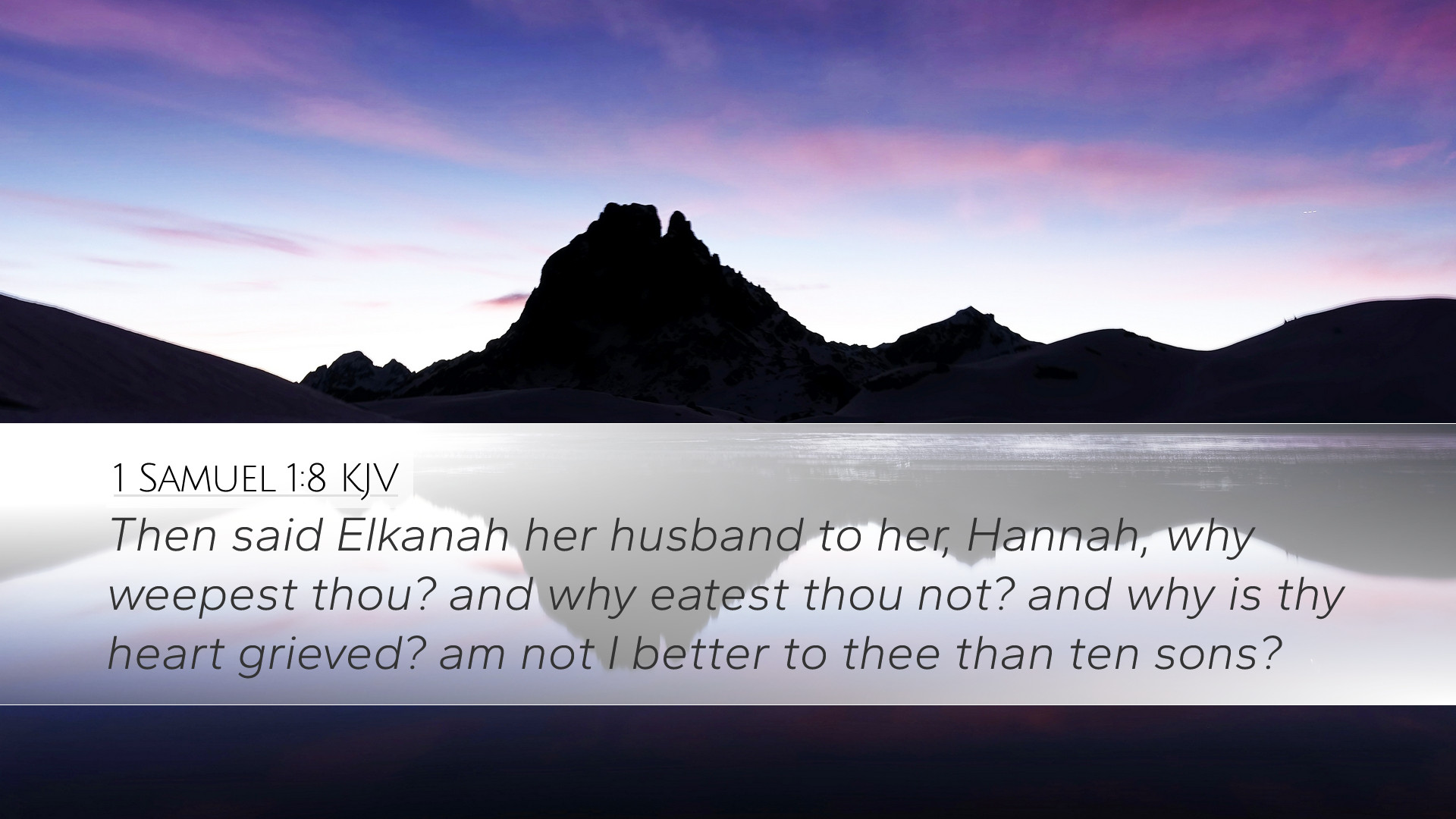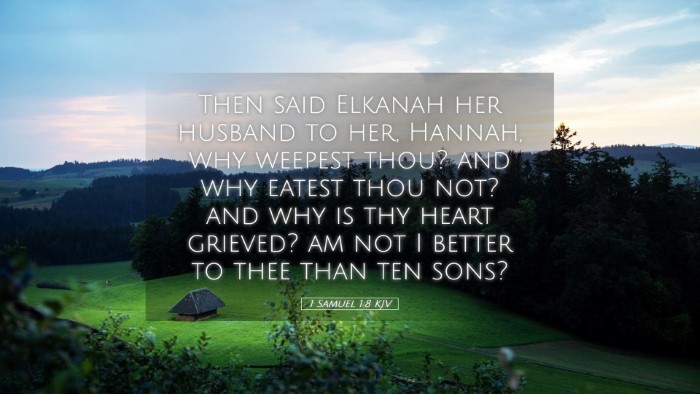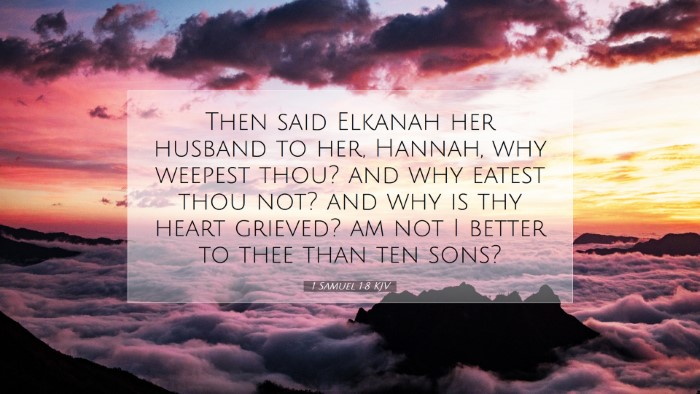Commentary on 1 Samuel 1:8
Bible Verse: 1 Samuel 1:8 - "Then said Elkanah her husband to her, Hannah, why weepest thou? and why eatest thou not? and why is thy heart grieved? am not I better to thee than ten sons?"
Introduction
This verse is pivotal in understanding the deep emotional turmoil faced by Hannah, the mother of Samuel. The situation highlights themes of distress, emotional struggle, and the dynamics of familial relationships, especially concerning childlessness in the context of ancient Israelite society.
Contextual Background
The book of 1 Samuel opens in a time of moral decline in Israel. It sets the scene with the introduction of Elkanah, his two wives—Hannah and Peninnah—and their respective familial tensions and struggles. Hannah’s barrenness is a key element that drives the narrative and character development.
Analysis of Elkanah’s Question
Elkanah's inquiry into Hannah's grief provides significant insight into his character and his relationship with her. The verse raises several important themes:
- Empathy and Concern: Elkanah's question suggests a deep concern for Hannah’s welfare. His desire to understand her sorrow reflects a loving husband who wishes to alleviate her pain.
- Value of Relationships: The conclusive phrase "am not I better to thee than ten sons?" emphasizes that Elkanah values his relationship with Hannah over the societal pressure to bear children. This assertion reveals the importance of emotional connections in biblical contexts.
- Societal Pressures: The statement underscores the cultural context where childbearing was considered essential for women's status and fulfillment. Elkanah acknowledges this societal view but attempts to prioritize personal relationship over societal expectations.
Commentary Insights
Matthew Henry: Henry emphasizes Elkanah's attempt to console Hannah. He notes that her tears and refusal to eat indicate profound distress. He recognizes her grief stemming not only from personal longing for a child but also from societal shame associated with barrenness. Henry urges readers to understand that human relationships can provide solace, but they cannot replace the fulfillment of God’s promises.
Albert Barnes: Barnes discusses the theological implications of Hannah's plight and Elkanah's response. He highlights that while Elkanah attempts to comfort Hannah, there remains a disconnect between emotional support and the fulfillment of divine purpose. Barnes notes that the heartache of barrenness can lead individuals to seek deeper spiritual truths, ultimately preparing them for God’s intended work—a key precursor to Hannah's eventual prayer and dedication of Samuel.
Adam Clarke: Clarke provides a detailed exploration of the cultural dimension of Hannah's sorrow. He comments on the significance of offspring in Israelite culture, stating that Hannah's emotional turmoil is amplified by the societal stigma surrounding childlessness. He emphasizes that Elkanah’s dialogue with Hannah signifies a loving attempt to redirect her focus from societal pressures to their relationship, illustrating the complexity of familial love.
Theological Reflections
This verse not only sheds light on human emotions and relationships but also prompts deeper theological reflection:
- The Nature of Suffering: Hannah’s anguish can be perceived as a reflection of the human condition. The pain of unfulfilled desires often leads to a profound encounter with God, marking the beginning of divine intervention.
- The Role of Prayer: Hannah’s eventual turn towards prayer and vows establishes a powerful example of seeking God amidst despair. Elkanah’s question serves as a catalyst for her spiritual awakening.
- God's Sovereignty: The narrative foreshadows God’s plan and sovereignty in Hannah’s life, underscoring that although humans may struggle with inadequacies, God’s purposes prevail in profound ways.
Conclusion
1 Samuel 1:8 presents a poignant exploration of human emotion, societal expectations, and the desire for divine intervention. Elkanah's response to Hannah's sorrow is a multifaceted commentary on love, empathy, and understanding within relationships. For pastors, students, theologians, and Bible scholars, this verse serves as an entry point into a larger narrative about the transformative power of prayer, the human experience of suffering, and the intricate interplay between divine order and personal longing.


